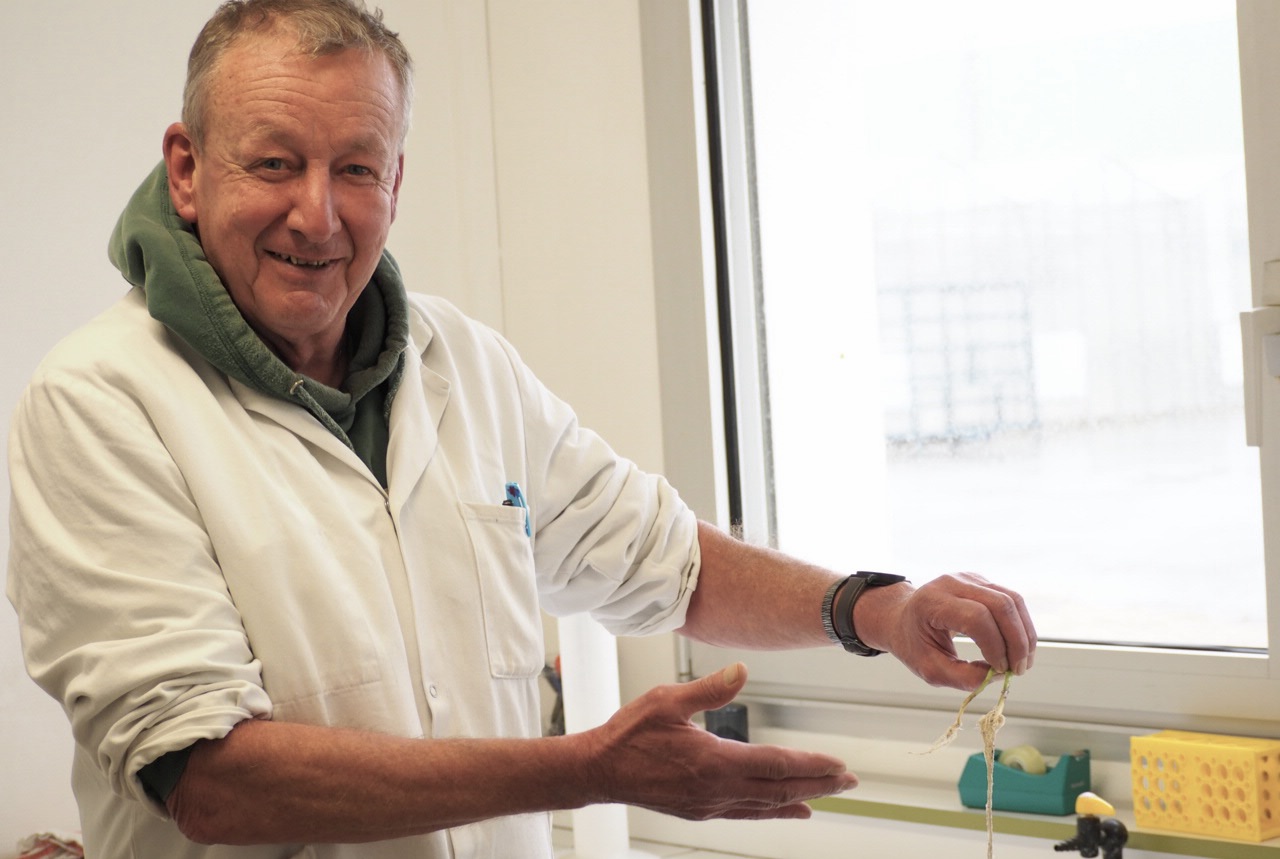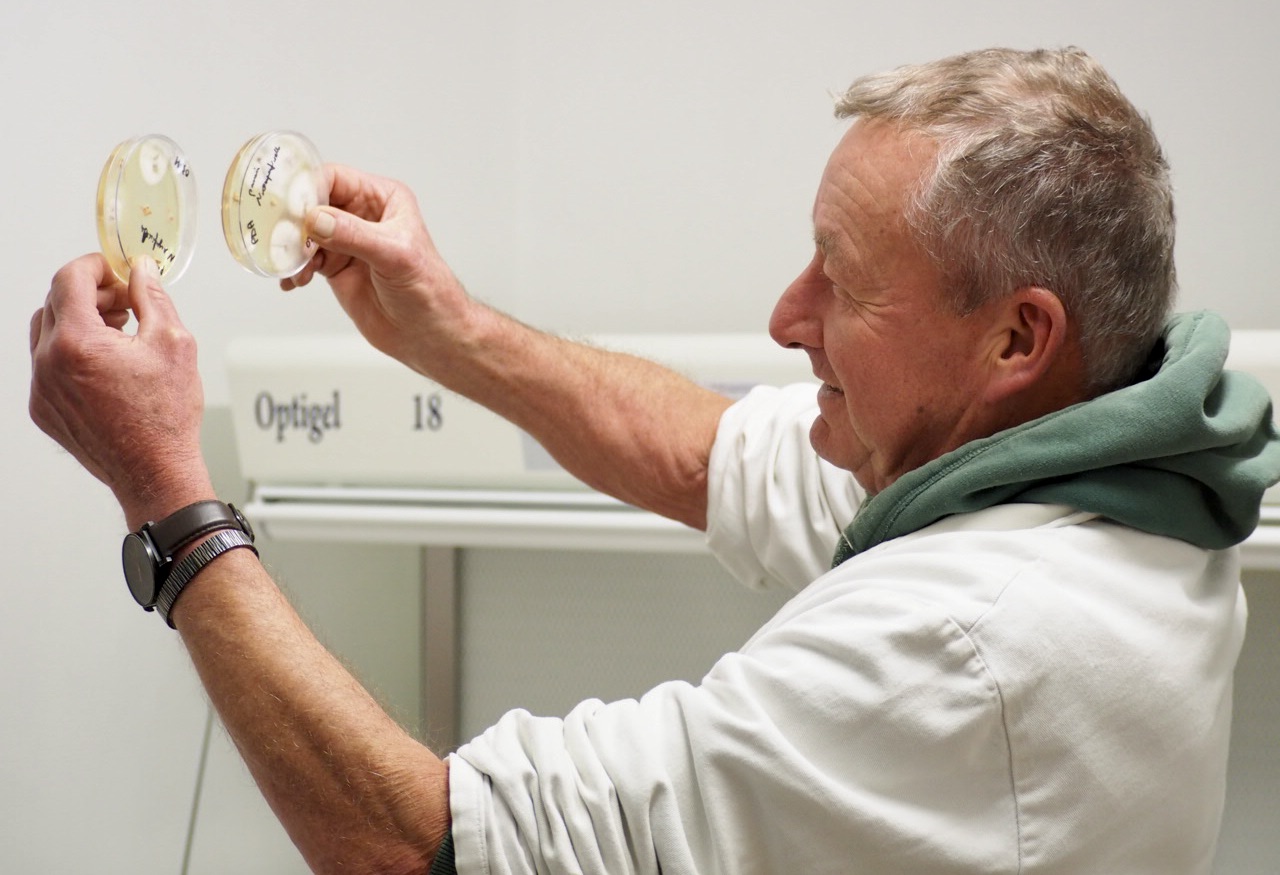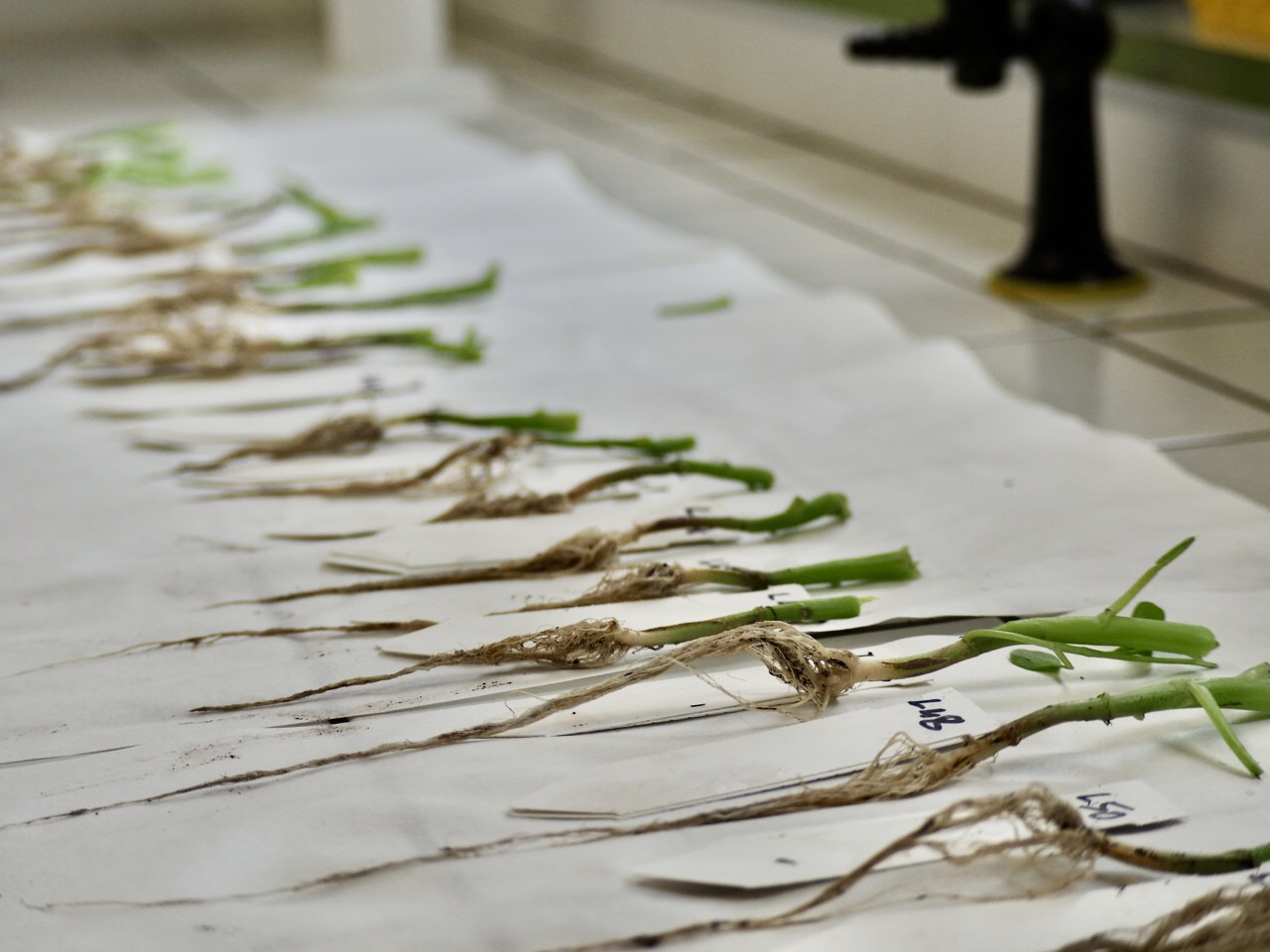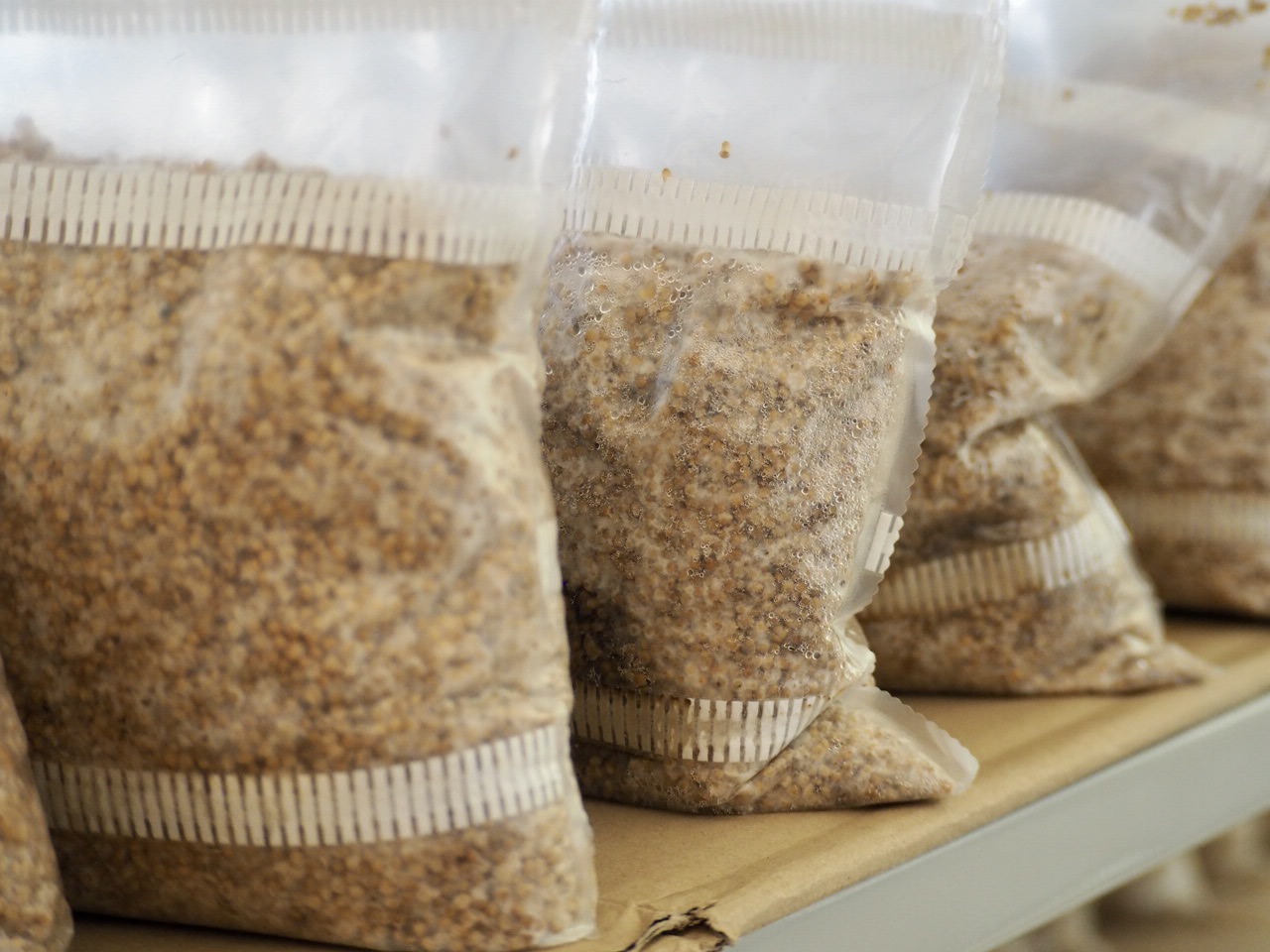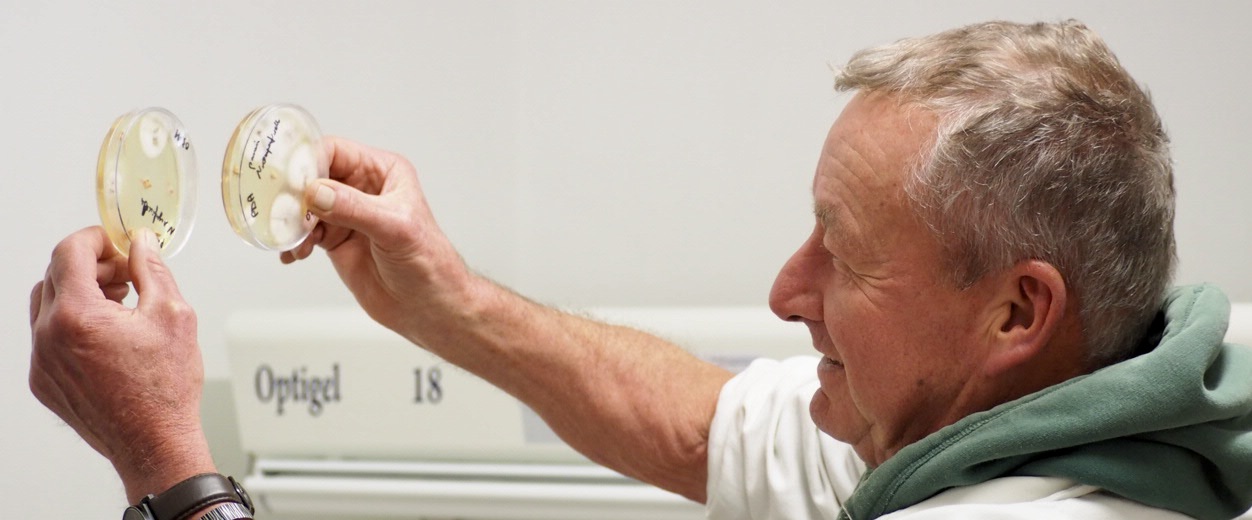Today we take you to meet one of the pioneers of varietal research in Brittany, Jean-Luc Tanguy, former head of research and development at OBS (Breton Selection Organisation). For over forty years, he worked to develop vegetable varieties to meet the expectations of producers, distributors and consumers.
A few months before his retirement, he looks back on the missions he has carried out and the changes in the world of variety research.
“I’m no longer in charge of research and development. Today, Benoît Borschinger, a colleague with whom I worked as a mentor for two years, is in charge. I’m here to support plant breeding.”
Modesty and sympathy are undoubtedly the two characteristics we can attribute to Jean-Luc when we meet him for the first time. In his sixties, hoodie draped over his shoulders, he explains his business and the challenges it faces.
Ensuring production results
The creation of new vegetable varieties is driven by changes in legislation, climate change, as well as producers’ demands in terms of yield, overall quality and earliness.
“Today, we favor the creation of hardier varieties. This is in line with history: fewer inputs are authorized, the climate is changing, and fast, leading to major changes in production cycles, whether for shallots, onions, cauliflower or artichokes”.
Other constraints have also been added to this already long list, notably changes in working conditions and the prevention of MSD (musculoskeletal disorders). For example, a cauliflower variety whose heads are too hard to cut will not be adopted by growers, even if it meets other resistance and quality criteria.
Over the years, OBS researchers and breeders have developed their own specifications. And the rapidity with which climate change is taking effect will not make it any easier – on the contrary.
Working together
One of OBS’s strengths is its location at the heart of the production basin. Breeders work directly with growers. “When a disease is identified on a crop, producers refer it to the chambers of agriculture, then our technicians go out into the field to take samples. Then we work on it, in the laboratory.”
But OBS doesn’t wait for the alarm to be sounded before starting research work.
“As soon as fungi or bacteria are spotted, we don’t wait for regulations or the climate to change. We start the research.”
And here we come to the heart of Jean-Luc’s profession: microbiology.
Microbiology at the service of producers
“What is a weak signal can become something very important in 3 or 4 years”.
Jean-Luc’s strength lies in being able to tell whether it’s a fungus, a bacterium, or even a parasite; to identify its actions, what it needs to develop.
“The analyses we’re going to carry out will enable us to find out how the genetic material – in other words, the existing varieties – behaves in relation to this problem. Are there any natural resistances in our commercial material*? If not, is there any in the material we have available, in the lines, the biodiversity we have? The earlier we do it, the further ahead we are”.
If the weak signal identified becomes a real alert, this method can save several years. This is what happened with mycospshaerella, a cabbage disease that can attack different cabbage species in autumn and throughout the winter. The creation of new varieties by OBS, as soon as the disease was identified, enabled us to maintain a high level of production and quality.
Ensuring storage stability
In food production, storage is often just as important as production. This is why OBS is also working on these issues, particularly for shallots and onions.
The aim of this research is to limit storage diseases. Indeed, diseases can be present in the bulb and, depending on storage conditions, hygrometry and temperature, their development can explode.
“Until recently, shallots were soaked in baths of hot water and fungicides, which are now banned. We didn’t wait for the ban on fungicides to come into force, however, to find other solutions to ensure that alliums would keep well. Tests began over seven years ago.”
How is this work carried out? Jean-Luc explains the method:
“We cultivate the fungus on cereals, which we then sow at the foot of the plants. In this way, we bring the pathogen to the soil, which then becomes heavily infested. We are planting in this contaminated soil to study shallot production and conservation.”
Since the start of these trials, some varieties have been confirmed. But the new varieties produced must also meet all the expected criteria: earliness, yield, overall quality…
To describe all this work, Jean-Luc has the right phrase: “It’s extremely complex”.
He ends this interview with a touch of humor: “The researcher who has the bottle, he has taken some knocks. He’s not afraid to take a few more, and is willing to change his objectives. But the goal remains the same: to seek better control of our genetic material.”
The objective of OBS will indeed remain the same, but the adventure will continue without Jean-Luc, to whom we wish, a few months in advance, a happy retirement.
*Material refers to varieties, commercial material to varieties in the catalog.
